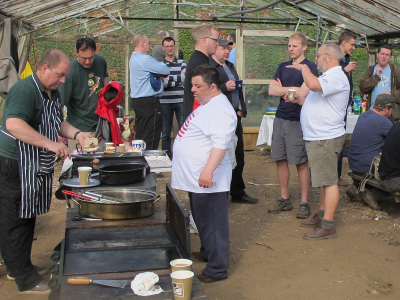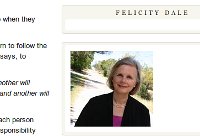One another - Today we're going to see how much we can draw from a single occurrence of the phrase 'one another'. Romans 13:8 is the particular example we'll consider.
Here it is in context, verse eight is in italics...
This is also why you pay taxes, for the authorities are God’s servants, who give their full time to governing. Give to everyone what you owe them: if you owe taxes, pay taxes; if revenue, then revenue; if respect, then respect; if honour, then honour.
Let no debt remain outstanding, except the continuing debt to love one another, for whoever loves others has fulfilled the law.
The commandments, ‘You shall not commit adultery,’ ‘You shall not murder,’ ‘You shall not steal,’ ‘You shall not covet,’ and whatever other command there may be, are summed up in this one command: ‘Love your neighbour as yourself.' Love does no harm to a neighbour. Therefore love is the fulfilment of the law.
Wider context - There's a wider context too, that we need to bear in mind. Paul first writes about civil government, making it clear that governments are there because the One who is Authority puts them there. They have a function and a purpose, we must submit to them.
Then come the verses above.
And finally Paul writes that time is short, we need to act now while we still can. Jesus is returning - soon! We need to be found ready and obedient and already covered by him. Romans 13 is relevant in its entirety. We should read this chapter often and let it sink deep into our hearts and minds!
Three statements - But in verse eight, Paul makes three statements.
- Don't let any debt remain.
- Continue to love one another
- This fulfils the Law
What does he mean? He is not simply saying that I should pay off any debts I owe. He is saying that I should allow no debt to stand. He is saying I should pay my own debts but I should also, if necessary, pay yours. The important thing about debt is that it is paid, the effect is the same no matter who pays.
Jesus paid my debt so if I want to be like him I will pay yours. And Paul is not writing merely about money, he has just explicitly used the words respect and honour as well. These things apply to one another as much as (or more than) they do to governments.
There are to be no debts amongst us, not only because we pay them off but because we forgive them. When I lack the means to pay I become dependent on your willingness to forgive. Jesus is our example in this. He is the ultimate debt payer and forgiver. We are called to be like him in our dealings with one another.
Will I pay my monetary debt to you? Will I forgive your debt of money to me? But also (and often harder) will I pay the respect and honour I owe to you? And will I forgive you if you disrespect and dishonour me? This is the nitty-gritty of not allowing any debt to remain.
If I continue to love you I will indeed pay and forgive in all situations where debt might remain. Love will cause me, compel me to cover every kind of debt. If not, do I have love at all?
The debt that remains - And it goes further yet! Paul writes that there is one debt that should stand, the 'continuing debt to love one another'. Love is not just for today but also for tomorrow and for tomorrow's tomorrow. I owe you love and that is a debt I cannot pay off. Love goes forward without ceasing. 'Faith, hope and love remain', writes Paul, 'And the greatest of these is love'. Love remains, even in the kingdom of heaven, especially in the kingdom of heaven.
So, just as love is the fulfilment of Torah, so love is the fulfilment of civil law and indeed every kind of law. If I truly love I will not be able to commit any sin at all. The fact that sin remains is just a clear sign that love is not yet complete in me.
Let's go forward in our lives understanding that love remains and is greater than anything else. And let's remember who 'one another' means. It's not limited to the church.
Jesus made it pretty inclusive. What begins with brothers and sisters becomes all encompassing. Love the Father, love one another, love your neighbour, love your enemy. My love is to extend out and become fully inclusive, not in any way for club members only. 'One another' is just a starting point, the nursery slopes of loving.

















